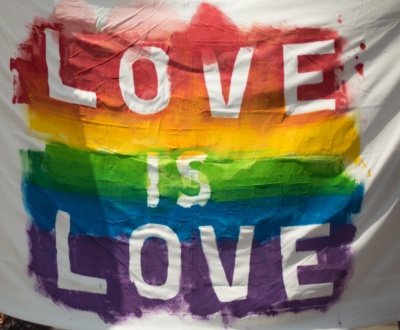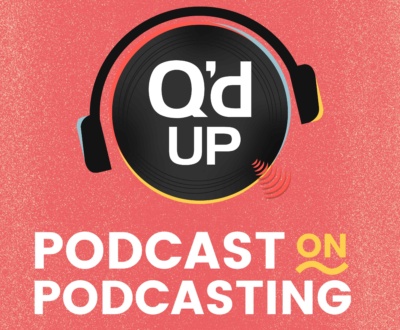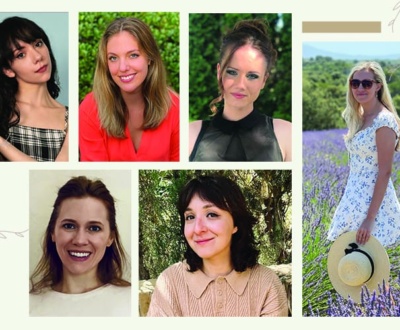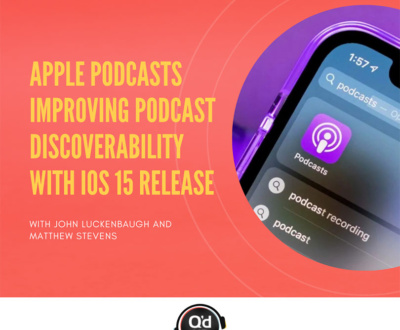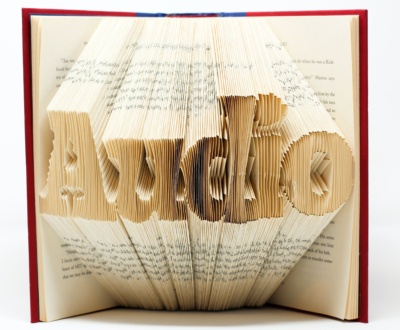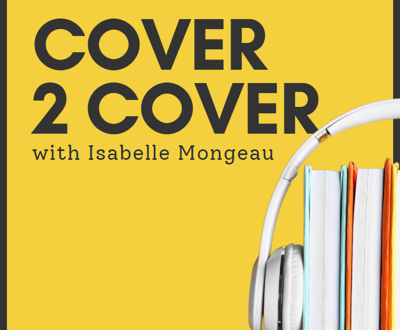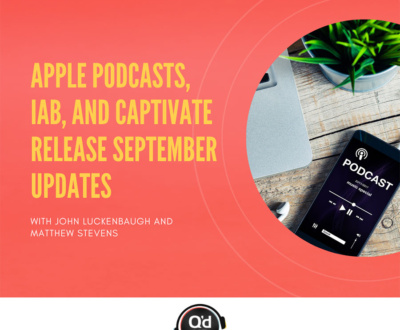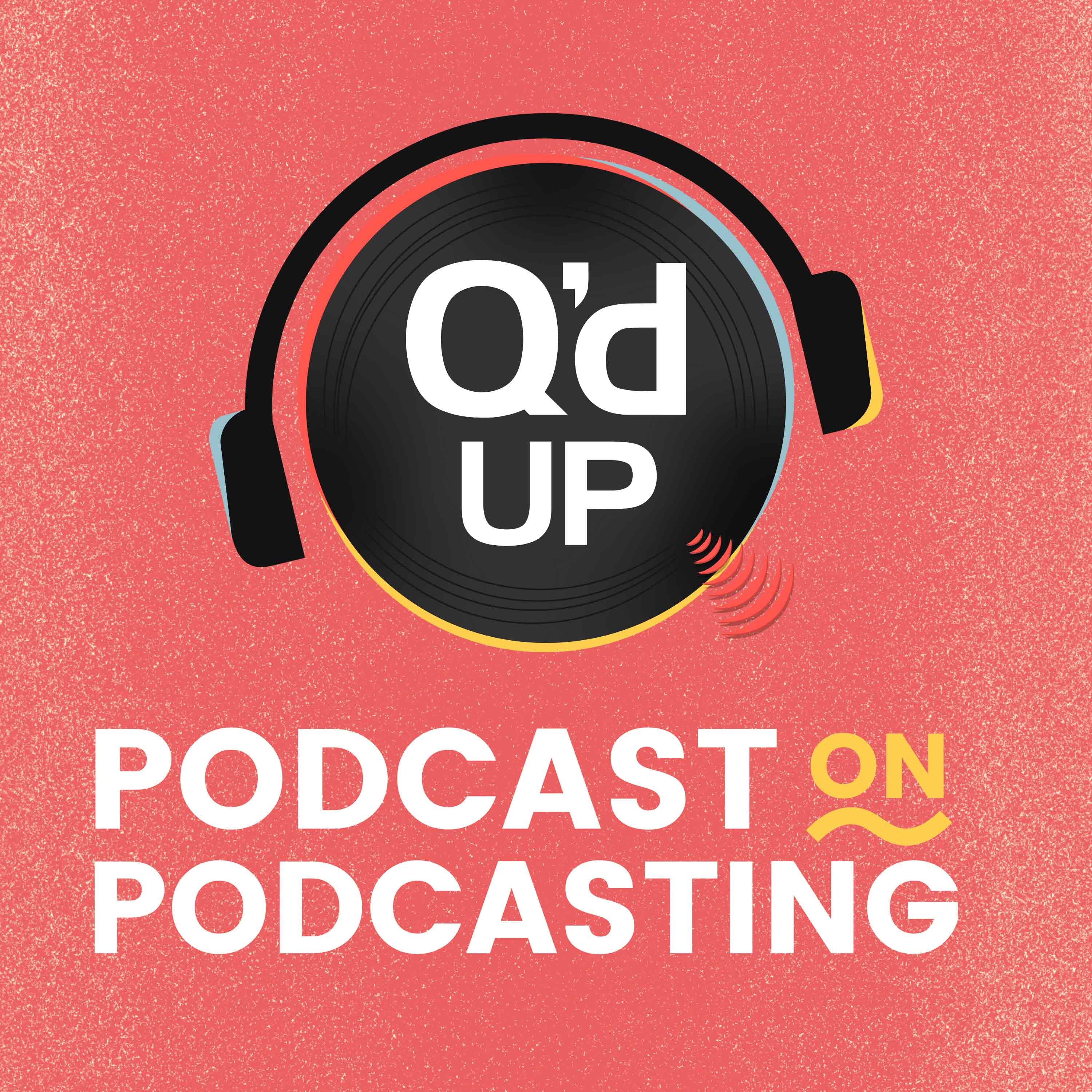
Every podcaster wants to sound like the pros, with that silky smooth voice and abundant confidence that pulls listeners into every minute of each episode. However, the veteran podcast host out there know it’s easier said than done, especially for the new podcasters just starting out. It’s time to level up your podcast hosting abilities with some tried-and-true techniques.
On this episode of the Q’d Up Podcast on Podcasting, I’m going to share some quick tips on how you can become a more expressive and entertaining podcast host. From speaking with confidence to emoting through your microphone and into your listeners’ ears, we’ll help you become a better podcaster.
Follow Q’d Up:
Listen to the Q’d Up Podcast on Podcasting:
Episode transcript:
You record an episode and when you listen back to it, you come off flat in some spots… like you don’t even care what you’re talking about. But you’ve been pumped for this episode for weeks and you were focused on getting everything right. There’s no way this is the episode that’s going to get messed up.
You think to yourself: “Is it the script? Man, it took weeks to write that and there’s no way I can completely redo it in time.”
“Maybe it’s the mic or audio interface that’s messed up,” you say in a hopeful glee as you think about the prospects of not putting out an episode this week.
But you check each one and everything sounds normal. And as you let out a long, frustrated sigh, you wonder what changed this time.
I think every podcaster has been in this spot at one time or another. So for brand new podcasters trying their best to juggle everything that goes into producing a quality episode, it can be disheartening to hear a final product that doesn’t match everything they put into it.
On today’s episode of the Q’d Up Podcast on Podcasting, I’m going to share some quick tips on how you can match the type of energy and tone you hear from some of the biggest podcast hosts.
Come on in and let’s get started.
“Hey now, they say the camera adds 10 pounds”
You might have heard that phrase on television or in a movie, usually used for comedic effect. But as it turns out, it’s true. According to Gizmodo, the focal distance of a camera can subtly distort the final image, making people look a little rounder than they really are.
Podcasting has a very similar phenomenon. Instead of increasing your waist line, the microphone can decrease your emotion.
When I talk with clients that are starting their first podcast, I like to always say: “The camera might add 10 pounds but the microphone takes 15% off your emotions.”
It’s true. Every time you sounded flat on your podcast, it’s because of this effect. If you talked into your microphone with the same delivery you have during a normal conversation with someone across a table from you, you’d sound like you’re trying to lull everyone to sleep.
It’s because so much of how we communicate is through body language. The corner of your mouth gently sloping up tells people you’re being a little cheeky. The corner of your mouth gently sloping down says you’re upset. Because podcasting is typically consumed as audio-only content, your audience can’t see that body language. Instead, they have to rely solely on your words and tone.
That means you need to be a little over the top for it to come through. In other words, turn it up to 11! That especially goes for your personality. Be the most you that you can possibly be when you record and you’ll sound more vibrant and expressive in your final episode.
Which actually brings me to my next tip: Use your expressions when you record
After this episode, head to YouTube and look up videos of voice actors recording lines. You’ll see many of the best voice actors in the business go so far over the top, it’s almost comical looking. But even among the tamer ones, they tend to go over the top in their expressions.
It’s because something as simple as smile or furrowed brow can change how you sound when talking. I’m going to record the same line but for one, I’ll smile. The other will get just a furrowed brow.
“What are you doing?” — Said with a smile —
“What are you doing?” — Said with a furrowed brow —
It wasn’t necessarily a massive difference but when combined with the appropriate tone and energy…
“What are you doing?” — Said happily —
“What are you doing?” — Said angrily —
Each comes across clearly as intended and each drives a certain emotion in the listener.
My third tip will make doing the previous 2 on recording day just a little bit easier. Document which emotion, tone, energy, vibe — whatever you want to call it — that you want to have.
Like I mentioned earlier, it can be really easy to just read through your script and not think too much about the tone and emotion you’re giving off. So having them written down on your notes, on your outline, or directly on your script makes it easier to remember and actually do it. As in most things, the more you prepare, the easier the job is.
Perhaps the best part about this specific tip is that it also forces you to sit down and think about these things during pre-production. That little extra bit of thought can inform your show’s style, how you script things, and even your guest choices.
This fourth tip might be one of the basics but as we know, not doing the basics is the quickest way to disaster.
Ensure you’re recording setup is set up properly.
Something as simple as you talking into the wrong part of your microphone can make you sound like you recorded in an empty gymnasium. It’s not going to matter if you’re throwing everything you have into your recording if the audience can’t clearly hear you in the first place.
Likewise, having too much room noise or an echo can mean you have to mix the final audio differently, eating at the dynamic range your voice has, which, in turn, impacts how much of that emotion comes through on the episode.
For a more thorough explanation of this topic and some tips to improve your recording quality, go back and listen to episode 4 of this season.
Finally, be yourself.
Earlier in my audio career, I tried putting on my best radio announcer voice during a recording. You know the one… the morning radio DJ…
“It’s the Mix Master Matt Hour on 101.5, the X.”
As expected, it sounded just as cringey as it did right now. But it taught me a valuable lesson.
My audience wanted me, just as I am. And by doing that fake radio voice, I wasn’t being myself and anything I said came off as inauthentic and weird.
You are the reason your audience listens and you should never forget that.
Now get out there and make something amazing!
Request a free quote
We offer high-quality production, distribution, and marketing for podcasts and audiobooks. Contact us today for a free, no obligation quote

